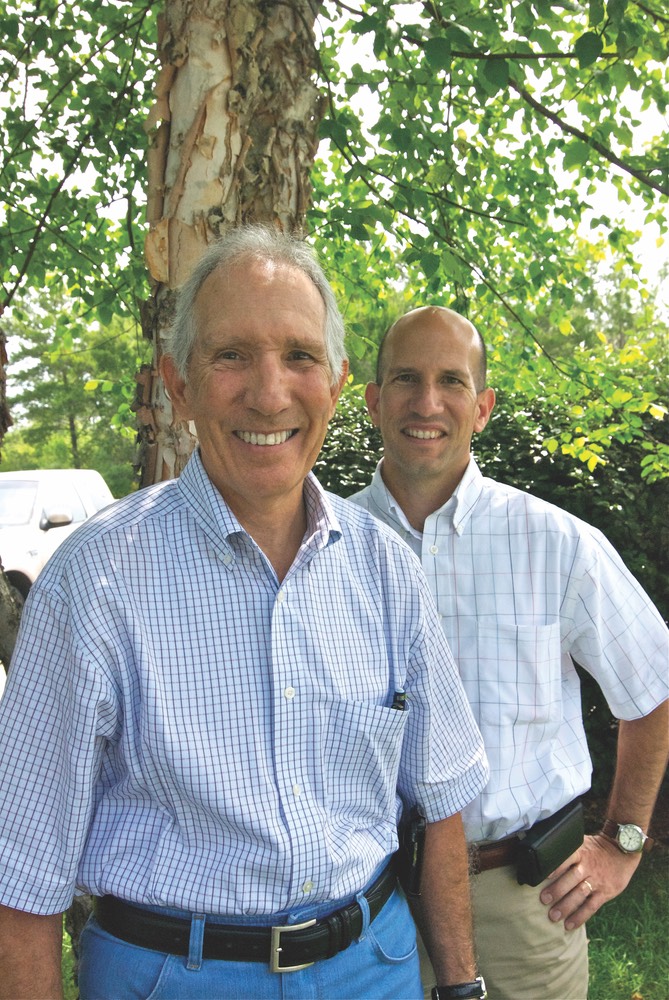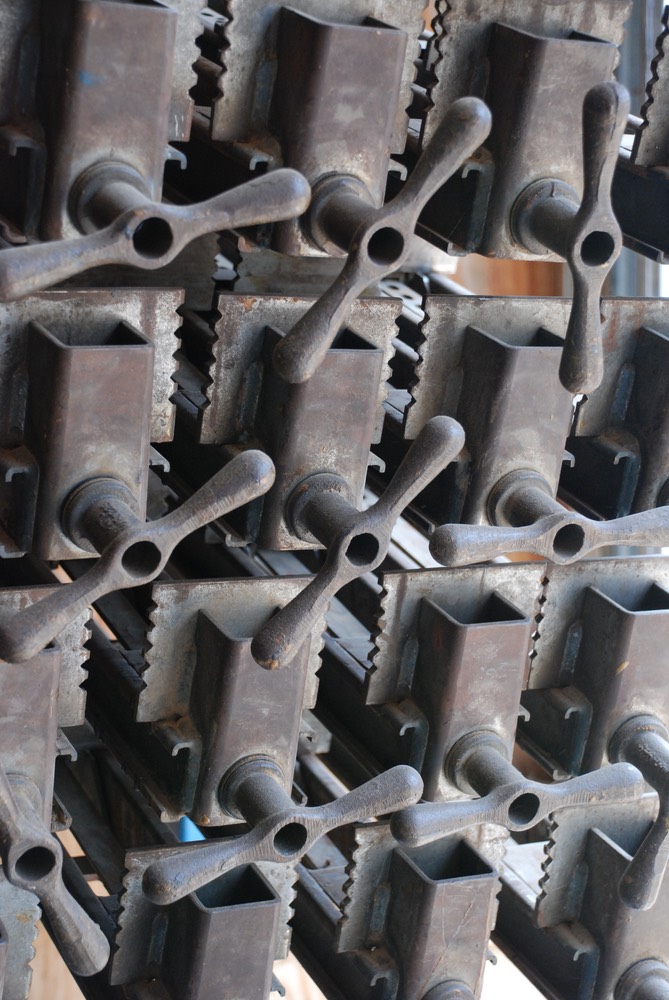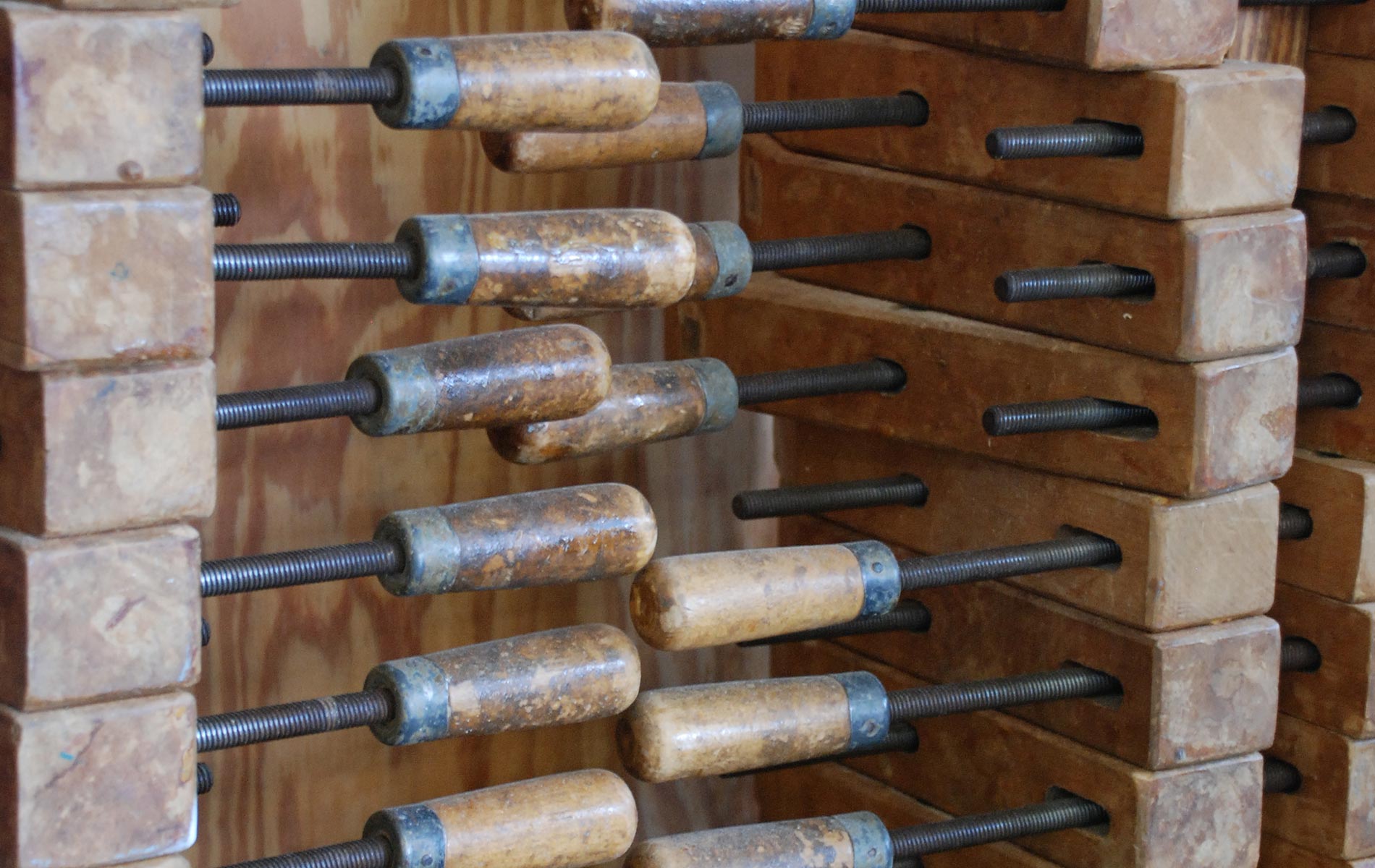
vie-magazine-ef-san-juan
E. F. San Juan
By Sallie W. Boyles | Photography by Gerald Burwell
One of the hardest-hit market segments during the current economic situation is the building industry. At first glance some might wonder how E. F. San Juan—a Youngstown, Florida-based custom moulding and millwork manufacturer—maintains the resources not only to survive but also to thrive. A closer look, however, reveals an organizational framework that is poised to withstand adversity, as well as to capitalize on marketplace advantages. At the heart of this framework are solid principles and a close-knit family.
Traditionally, the San Juan family—who immigrated from Spain and Cuba to the United States between the 1880s and the early 1900s—was mostly known in Tampa for the fine cigars they produced. Ed San Juan’s father (who went by the name of Eddie) opened his own small cigar factories, known as “buckeyes.” He had a booming business until the end of World War II, when the numerous military bases that bought his cigars closed.
When forced to start over, this branch of the family tree utilized another talent and passion—woodworking. Patriarch Eddie, who was also a carpenter and master craftsman, opened a factory that produced high-end furniture and store fixtures. Sharing his father’s love of wood, Ed, too, became a master craftsman and worked in his father’s business from 1959 to the time it was sold in 1975. Taking advantage of a shift in market demand, Ed then established E. F. San Juan in 1976.
As soon as he was old enough, Edward Jr., the elder of Ed’s two children, held various jobs in the millwork plant where he worked weekends and summers. He was there to help out, but he never intended to make a career of the family business. Edward was aiming for a medical degree and a future as the family’s first doctor of medicine. In college, however, he could not ignore his natural affinity for business. He changed his major from premed to finance and went on to earn his MBA from the University of Florida before returning to Youngstown and E. F. San Juan. The father-and-son team not only enjoyed working together, but they also both acknowledged that Ed’s experience and Edward’s education complemented one another.
“I was never pressured,” says Edward. “It just happened.” In 1987, Edward officially became a partner in E. F. San Juan. “It has been nothing but a pleasure for me to work with Edward,” says Ed. Father and son agree that the arrangement has been a great success.
Supplying millwork for more homes than anyone has taken the time to count, E. F. San Juan has made a profit every year since it opened. Serving two primary geographic markets—Northwest Florida and the Birmingham metropolitan area—the company currently operates with forty-five employees. “We’ve done a good job of retaining them,” says Ed Sr. “Many have been with us in excess of ten years.” Among them is Edward’s wife, the company’s comptroller for the past twelve years.
Much of that loyalty, Edward believes, stems from providing opportunities to people who take pride and ownership in their work. Today’s millwork industry is fully automated, so, while woodworking apprenticeships of the past have become obsolete, Edward is happy to train anyone with a strong work ethic on how to operate the high-tech equipment. “Without a doubt, our people are our most valuable assets, and we treat them with the respect they deserve.” Demonstrating the two-way commitment, the owners actually share confidential accounting statements with their employees. “Being open demonstrates that our employees are important to us, and they fully understand the significance of their role in our company,” says Edward.
Setting the tone by example, the San Juans go out of their way to make each customer a priority. The relationship begins with a clear understanding of the client’s goals and budget, and proceeds with an effort to make every stage of the relationship a positive experience. “It’s rare that we don’t achieve the desired result and even form lasting friendships,” says Ed.
For many, E. F. San Juan’s phase of participation—providing the trim work—is among the most gratifying in the construction process. “After spending a great deal of their budget on elements that go behind the walls, homeowners can finally see their visions take shape when we come along,” says Edward. “We have received many notes from customers expressing their gratitude for what we’ve done,” he adds. “In most business situations, the customer’s check signifies the end of the transaction, but a written acknowledgement truly gives us the absolute satisfaction we strive to obtain.”
Satisfaction seems likely since E. F. San Juan can produce a virtually endless array of moulding profiles. “All of our shaping knives are ground in-house,” says Ed. “We can manufacture any design from an architect’s drawing.”
Ed says that, early on (once it was determined that E. F. San Juan would market primarily to architectural firms), it was understood that providing excellent support to the professionals in charge would be essential. Those elements include a comprehensive company website, catalogs, product samples, and computer disks with moulding profiles. “Architects occasionally call on my dad and me for our expertise,” adds Edward. Their guidance might relate to selecting an appropriate wood species for an application relative to function, availability, beauty, and cost.
Additionally, if a client wants to see more than a sample, E. F. San Juan will manufacture custom tools, if needed, to finish a wall with the moulding under consideration before any agreement is signed. “We will provide preliminary moulding samples so that the builder can assemble a full-scale mock up to demonstrate how the room will look upon completion,” says Edward. “Even at that stage of the game, we may have to grind twenty or thirty knives, but that’s part of our service. You don’t get that from a big box retailer.”
Although they specialize in high-end projects—fine homes, offices, and churches—the San Juans understand that even the most lavish properties are built within budgets. Owners appreciate cost-cutting recommendations, especially now. Instead of choosing walnut to finish the study of an elegant home, for example, the customer may opt for a less expensive wood that will stain to give the same appearance. “For a small percentage of customers, money is not an issue,” says Edward, “but the wealthiest did not become that way by being foolish with their resources. It’s up to us to offer thoughtful alternatives.”
Property owners and even architects also look to the San Juans for guidance when choosing the best windows and doors relative to the most recent building codes. Technological advances in materials that are now used have also changed product specifications. “We started off manufacturing all of our products,” says Ed, “but, when our customers asked us to supply windows and doors, we aligned ourselves with companies that made superior products and also conducted business in ways that coincided with our ethics.” From numerous changes in the Florida wind codes to the ongoing evolution in building materials, selecting windows and doors for a project requires many different considerations that did not exist a few years ago. “If it had not been for our vendors, who helped us address the codes and customer preferences, I don’t know that we could have remained in the window and door industry,” says Ed.
No matter its scope, each project comes with a unique set of opportunities and challenges. Ed further confides that many properties, not only the multimillion-dollar mansions, have impressed him. “I will marvel at a home that is modest in price, but it strikes me because of its layout, the way it is appointed, and the overall feel I get inside.”
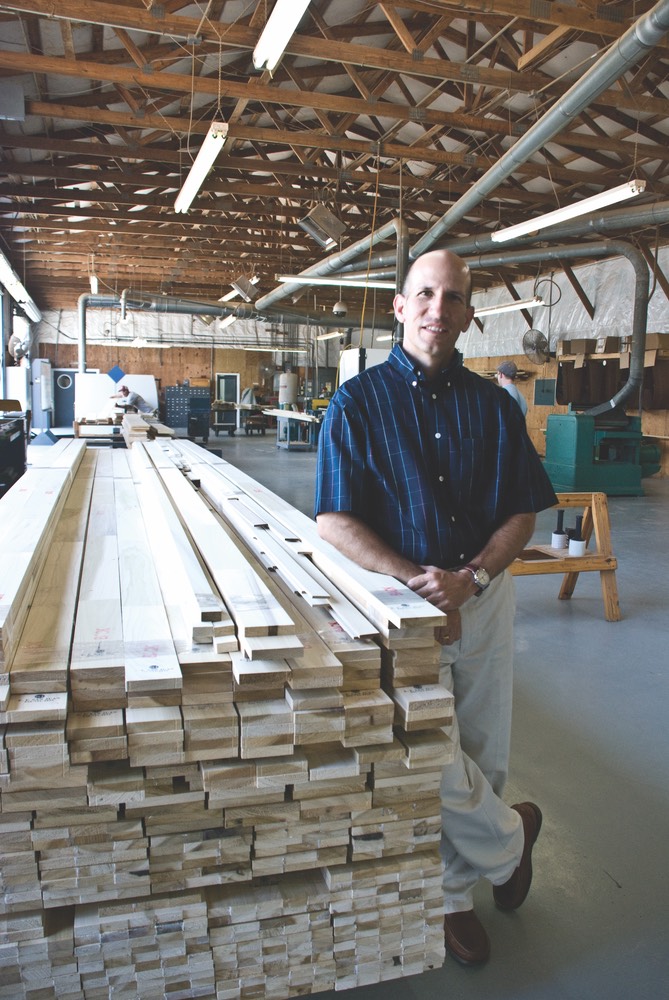
Edward says that, for different reasons, certain jobs stand out in his mind. Among them is Caliza Pool at Alys Beach—from its general design to its intricate screens and millwork components. “We probably spent as much time thinking about that project as it took to build it.” Edward adds that it’s especially rewarding to be part of a creation like Caliza Pool, which is enjoyed by many as well as featured in magazines. For contrast, he cites Seaside Chapel as a favored project for its simplicity. He equally values each opportunity he has to work with some of the world’s most talented architects. “They conceive ideas on paper that seem impossible, yet, when we bring such concepts to fruition, I learn what can be done.”
A can-do spirit is intrinsic to E. F. San Juan. “Though the real estate market and the overall economy are depressed, I see America as a great country that always comes back,” says Ed. He further states that his pragmatism has paid off during hard times. “As the senior partner, I wouldn’t approve of taking on debt; I pay as I go,” he says. “No matter how well we are doing, I never get comfortable because I always expect something to happen—and it always does! Therefore, we have been able to enter this period on solid financial footings, as well as with a good reputation in a broad market.”
Edward agrees, although he has, from time to time, questioned his dad for being too conservative. “It was hard to hear about all the money people were making flipping condos while we stood by,” he says. However, with the benefit of hindsight and the knowledge of others’ financial setbacks over the past few years, Edward is grateful for his father’s low-risk approach, adding with optimism, “When times are tough, we are also forced to be more creative. As a result, we’ve implemented some wise policy changes which will carry forth as the economy improves.”
Although not financial risk takers, the San Juans are not opposed to exploring new horizons. A few years ago, both Ed and Edward took flying lessons and obtained their pilot licenses. “Golf used to be our main recreation, but we’d discuss work between each hole,” says Edward. “The golf course was not much of a diversion.” While learning to fly, however, they were too busy thinking about surviving to talk about business. In addition to giving father and son fresh perspectives to share, the two have also gained a degree of humility from the experience. “Our instructors were half my age, one-third my dad’s,” Edward says. “Learning an entirely new field from people who seemed so young was humbling. It also made me more patient as a manager and a parent.”
As a parent, does Edward expect a third generation of San Juans to enter the millwork business? So far, 12-year-old Lydia (scheduled to clean the office floors later in the day) and15-year-old Eddie (who is mowing the lawn) are already learning to be responsible part-time employees. “I certainly hope our business continues to thrive so they have that choice,” says Edward. If they decide to make E. F. San Juan a bona fide career, however, Edward wants them to graduate from college and work elsewhere first. “In the beginning, I didn’t fully appreciate having my dad, who loved me, as my boss,” says Edward. “I could be rather arrogant at times, and anyone else would have fired me!”
Despite any glitches that the two needed to work out years ago, Ed and Edward, who reflect genuine admiration and friendship, feel fortunate to spend their days together in a business that gives them joy, gratification, and pride. And, while neither can predict what the future holds, the owners of E. F. San Juan also believe that they could not be in a more desirable situation.
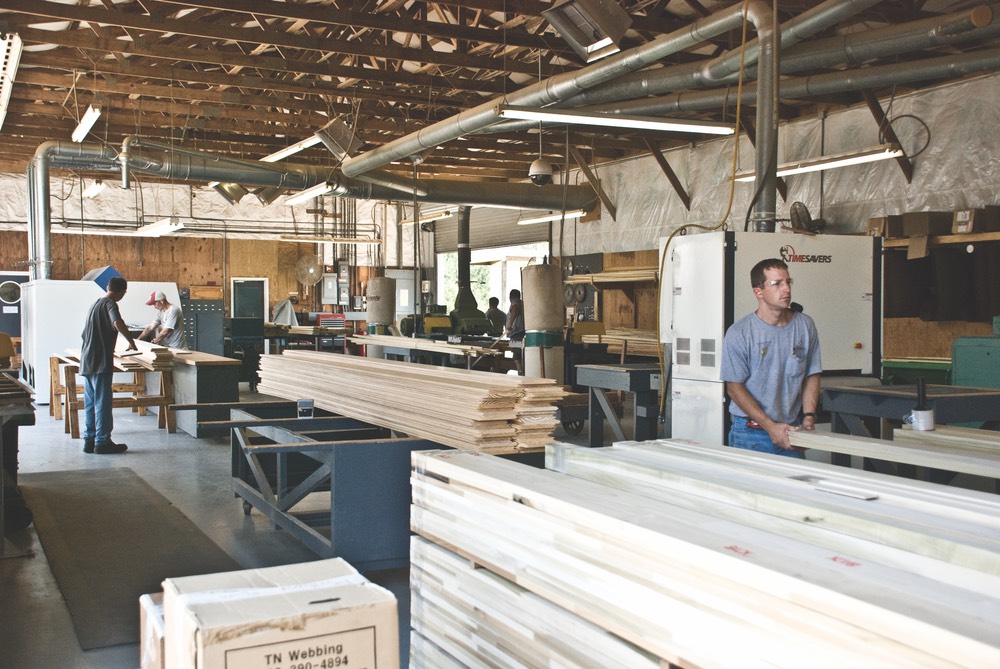
Although their total sales volume is down, the San Juans are convinced that Northwest Florida presents the best possible conditions in both boom times and during periods of economic weakness. Neither would want to work or live anywhere else. Edward sums up his feelings this way: “It’s a tough economy, yet all the cars on the road tell me that this is the place to be.”
— V —
Share This Story!
KEEP UP WITH THE LATEST STORIES FROM VIE



